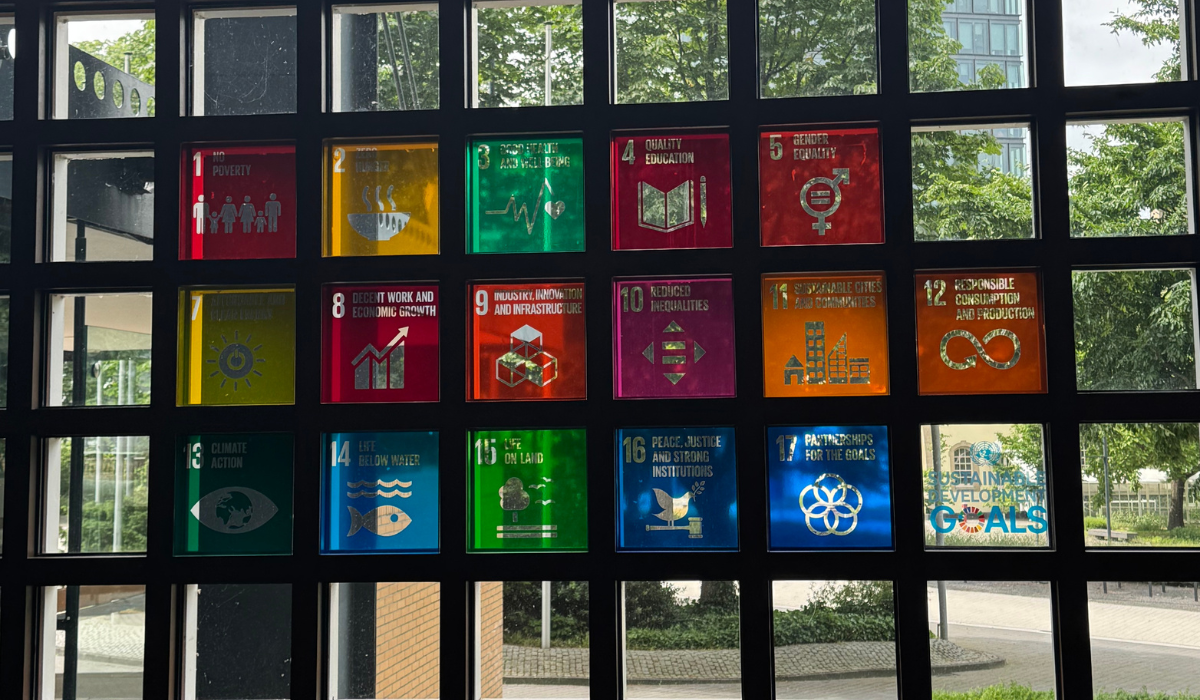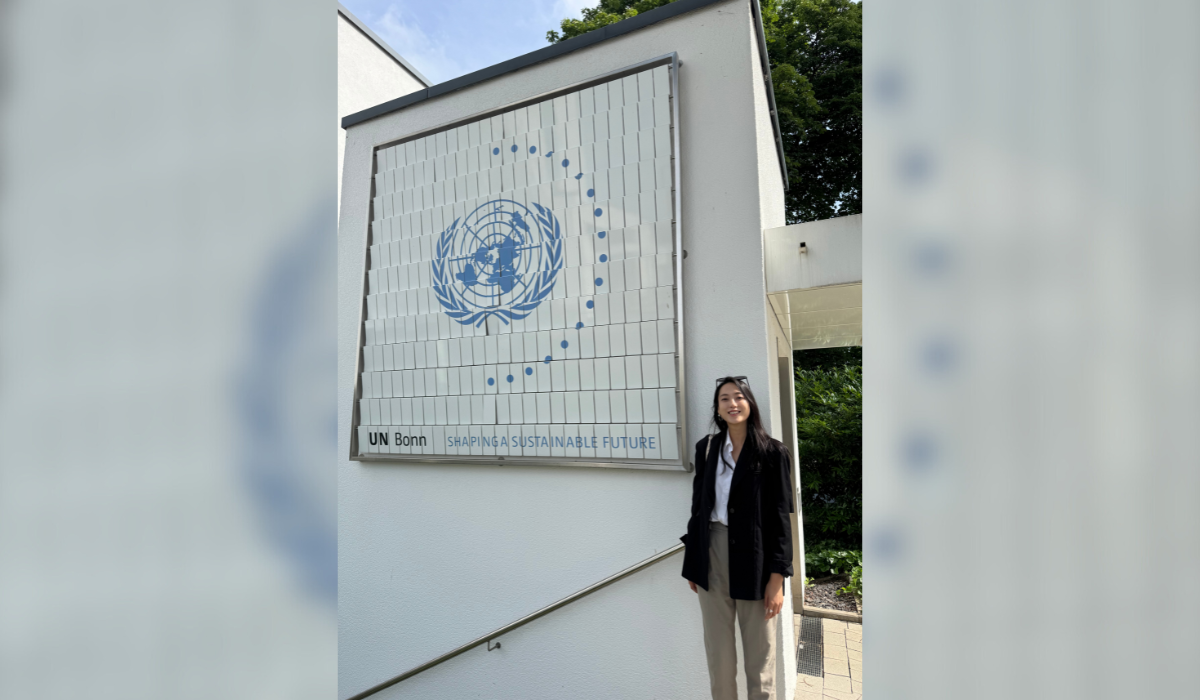College MPhil student, Hyeseon Do, reflects on her placement with the UN Environment Programme World Conservation Monitoring Centre (UNEP-WCMC).
Hyeseon, who is studying for the MPhil in Conservation Leadership, recently completed her research placement that was made possible thanks to College funding. The grant supported her professional placement with UNEP-WCMC specifically enabling in-person to undertake interviews in Rome and Bonn with experts from United Nations and other international conservation organisations.
Together, these activities formed the empirical foundation of Hyeseon’s MPhil dissertation, What Does One Health Mean in Practice? Framing and Operationalising Organisational and Experts' Perspectives for Conservation and Cross-Sectoral Alignment. One Health is an integrated, unifying approach that seeks to balance and optimise the health of humans, animals, plants, and ecosystems by recognising their interdependence and mobilising different sectors to work together
With the College’s support and the guidance of her academic and organisational supervisors, she explored how different organisations engage with the global emerging One Health approach in practice, and reflected on what kinds of leadership and collaboration needed to connect health and climate policies meaningfully with biodiversity conservation. During her time with UNEP-WCMC, Hyeseon examined how conservation perspectives are positioned within One Health frameworks, such as the global Joint Plan of Action 2022-2026. Her research focused particularly on the “4Cs” model – Communication, Coordination, Collaboration, and Capacity Building – exploring how these concepts can be a lens to understand the role of conservation leadership. In parallel, Hyeseon conducted 25 semi-structured interviews with stakeholders from UN agencies, NGOs, academic institutions, and donor organisations including in-person interviews in Germany, Italy and the UK. These in-person and virtual conversations also highlighted both the opportunities and constraints of cross-sectoral integration, revealing key tensions between scientific, economic, and political framings of One Health and beyond.
The College grant also enabled her to take part in London Climate Action Week 2024, where she was able to join discussions on the health–climate nexus. Reflecting on these experiences, she feels that “being present in high-level policy spaces has helped me see how conservation narratives can either gain visibility or risk marginalisation. It has given me a much clearer sense of the leadership needed to ensure biodiversity has a strong voice within broader global agendas.”
She adds: “I was particularly grateful for the professional and personal development I have gained through these opportunities and feel there are just as important as the academic outcomes. I was able to have direct engagement with senior policymakers, diplomats and practitioners and the journey taught me how to navigate complex governance landscapes, balance competing priorities, and communicate across disciplinary boundaries,” . As part of her placement, she also contributed to the development of UNEP-WCMC’s future work drawing up a proposed five-year roadmap for embedding the One Health approach more fully in the organisation’s work.
Hyeseon expressed her gratitude for the College’s support: “The College’s support was instrumental in enabling this placement, research, and professional development. Without the grant, I would not have been able to travel for in-person interviews from which I gained a valuable insight into global conservation challenges and also developed my professional network. This grant allowed me to examine the transdisciplinary collaboration needed for effective conservation and I got to experience firsthand the practical challenges of global policy implementation throughtransparent dialogues with leading experts. The lessons learned about leadership, equity, and systems change will continue to shape my professional path as I seek to contribute to the future of conservation policy and practice more widely.”





